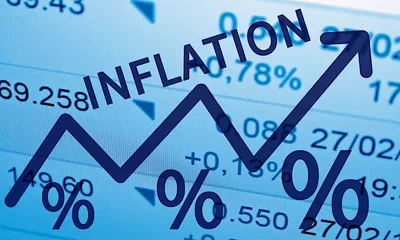The Nigerian naira appreciated against the U.S. dollar at both the official and parallel markets on Tuesday, February 25, 2025, signaling a modest recovery amid ongoing monetary policy adjustments.
At the official exchange window, figures released by the Central Bank of Nigeria (CBN) showed the naira closing at ₦1,485/$1, reflecting a gain of ₦2 from the previous rate of ₦1,487/$1.
In the parallel market, the currency traded slightly higher at ₦1,495/$1.
The naira also strengthened against other major currencies.
It appreciated by ₦60 against the British pound, trading at ₦1,900/£1, compared to the previous day’s rate of ₦1,960/£1.
READ ALSO: Naira holds steady against Euro amid conservative election win in Germany, FX market reforms
Against the euro, the naira gained ₦40, settling at ₦1,550/€1 from ₦1,590/€1.
The Canadian dollar, however, remained stable at ₦1,200/CA$1.
Financial analysts attribute the naira’s recent gains to several factors, including increased forex inflows, improved confidence in CBN policies, and reduced speculative activities in the black market.
Dr. Olumide Adebayo, an economist at the Lagos Business School, noted that the CBN’s interventions, including tightened monetary policies and foreign exchange management strategies, are beginning to yield positive results.
“The naira’s appreciation, though marginal, signals a gradual stabilization of the forex market. The CBN’s crackdown on currency speculation and its efforts to boost liquidity through diaspora remittances and export earnings have contributed to this slight improvement,” he said.
However, some analysts remain cautious, warning that the gains may not be sustained unless structural economic challenges—such as inflation, low export revenues, and forex supply constraints—are addressed.
“While this is a welcome development, the long-term stability of the naira depends on consistent policies that encourage investment, local production, and non-oil forex earnings,” said financial consultant Adebola Onifade.
Market watchers expect further fluctuations in the exchange rate, depending on global economic trends, oil prices, and the effectiveness of the CBN’s policies.
With inflationary pressures and forex demand still high, stakeholders urge the government to focus on policies that enhance local production and reduce reliance on imports.
As the CBN continues its interventions, Nigerians will be watching closely to see whether the recent gains mark the beginning of a sustained recovery or just a temporary market reaction.

 Health6 days ago
Health6 days ago
 Entertainment1 week ago
Entertainment1 week ago
 Crime6 days ago
Crime6 days ago
 Comments and Issues1 week ago
Comments and Issues1 week ago
 Football1 week ago
Football1 week ago
 Latest7 days ago
Latest7 days ago
 Comments and Issues1 week ago
Comments and Issues1 week ago
 Comments and Issues1 week ago
Comments and Issues1 week ago

